
■ Features
Freshta is a DJ and radio host (NTS, Foundation FM) operating in London. She recently caught up with fellow presenter and Grime artist Tia Talks to discuss navigating the worlds of radio and music at large as women of colour.
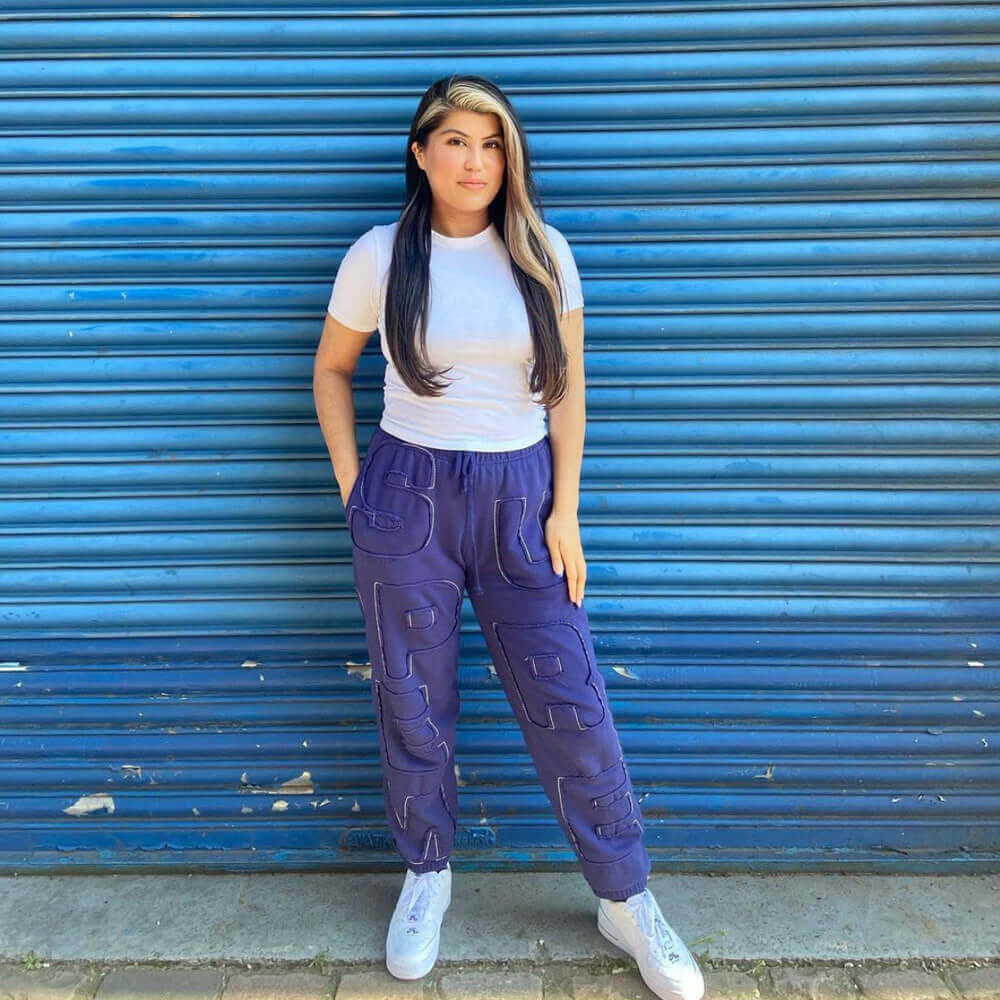 Freshta (Source: Instagram)
Freshta (Source: Instagram)
Tia, do you want to start by saying a bit about what you actually do? - F
I do photography, videography, I'm a radio presenter and producer, I have a series on YouTube called Wings and Wine. Recently, I'm making a transition into becoming a musician. Let's just say I am the definition of a creative right now! - T
Okay, so you’ve just started to spit bars. We've heard a few bits here and there, but a lot of people are curious. Do you want to give us a little insight into how that came about? - F
It was a random Tuesday in January and I heard a track that some people I know was working on and I just really liked the beat. So, kind of as a joke, I was like, I'm gonna write a verse.
Then I showed it to a couple of people and they were gassing me. People saw something in me that I didn't even see in myself. Then it got the attention of some people in music. So now I’m transitioning into doing that properly. - T
The other day, there was an announcement that you have a feature on a Wiley tune and it's coming out on vinyl? - F
Yeah, you can pre-order white label vinyls now of Wiley’s track Tour Bus which features myself, D Double E, Keedz and Kozzie on the remix.
We’re going to be shooting a video for it too and I still haven’t processed it to be honest. To be on a track with them names is nuts to me. That happened like two days after I did the little jokey writing bars thing so it’s been a really intense, fast-paced process. - T
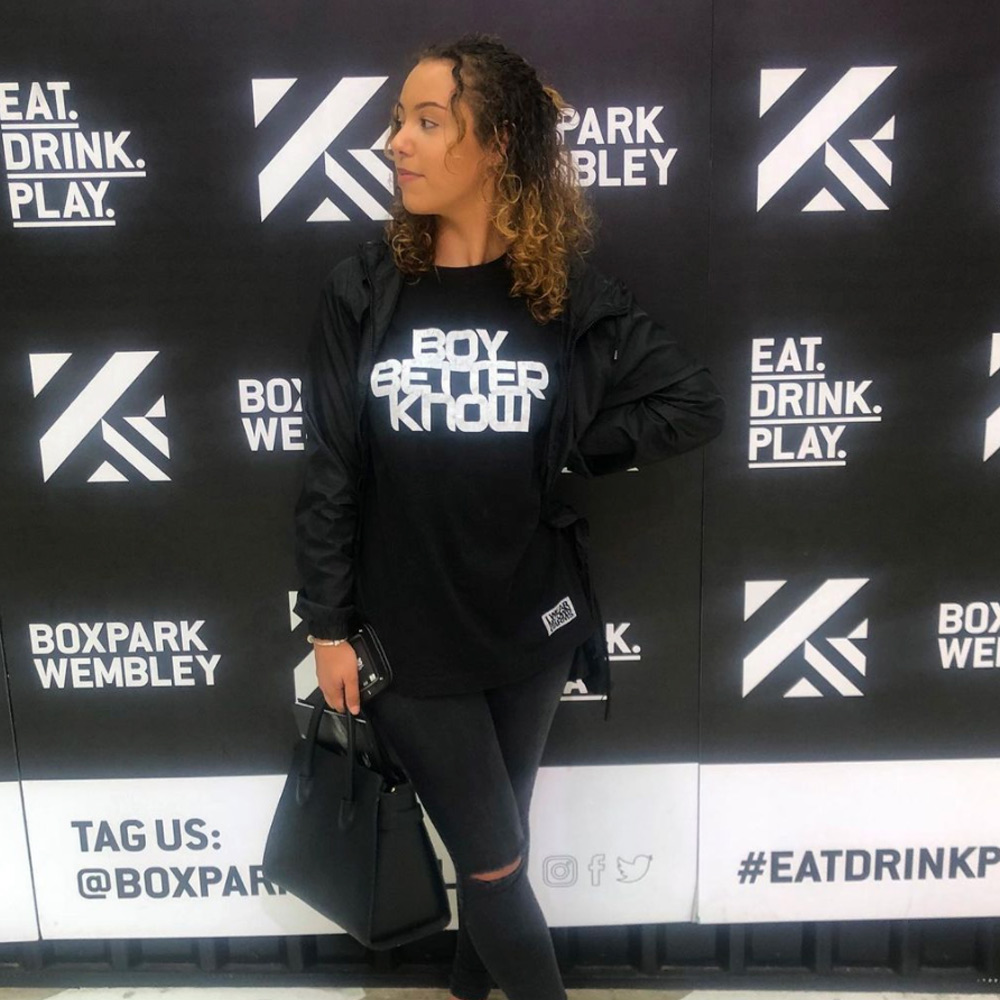 Tia Talks (Source: Instagram)
Tia Talks (Source: Instagram)
So let's get into radio. Tell me how you first started presenting. - F
I've always done what you could call presenting and content creation, on YouTube and stuff. Then, because I love music, the two kind of went hand in hand.
There’s a radio station in Brighton called Trickstar radio, I can’t remember if I reached out to them, or they reached out to me. Anyway, I did a few training sessions with them and just hit the ground running.
I was with Trickstar for about a year, then I picked up an internship in radio production at another Brighton station called Platform B which was an FM station. I was creating assets and producing there when they offered me a show. They didn't really have anyone on the station championing Grime at that time so I became that person.
After Platform B, I picked up a weekly show at Croydon FM. That was my first time DJing live and presenting at the same time. I don’t know how you do it because it’s a lot! - T
That’s why I barely talk sometimes when I’m mixing, it’s stressful. So you were on Trickstar, then you moved to FM radio at Platform B - Did you notice any major differences moving from an internet station to FM? - F
I definitely felt the FM station was more professional in the way I had a producer for my show.
I also noticed I would get way more people asking me, 'What song did you play at this time?' I wasn't used to that. Usually, on internet radio, people were listening more to the recordings afterwards. On FM I had more live listeners. - T
I was the opposite of you. I started off as a DJ, and got into radio presenting through that.
Going into music, I wasn’t really thinking about radio. I didn't ever think I'd have the confidence to speak on air, but it just happened naturally alongside DJing. But like I mentioned before, with my shows, I'm mixing all the time, rather than speaking all the time.
Starting out, I got involved with a station that isn’t going to be named. Then I kind of station-hopped for a little bit and got loads of experience.
It was when I started jumping on NTS, that I realised I liked radio so much. It was so professional and they have such a global reach. But yeah, when I jumped on NTS, I was like this is actually proper radio. They’ve got a great community too. - F
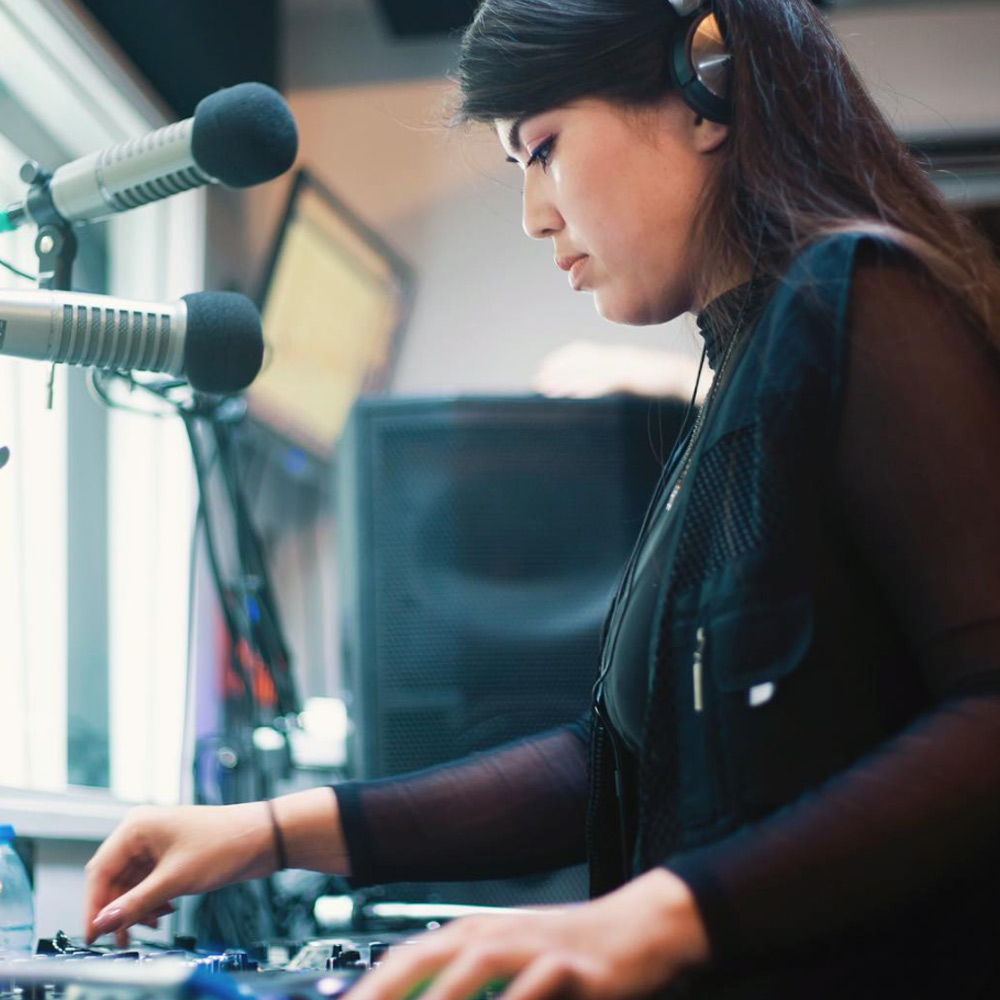 Freshta (Source: Instagram)
Freshta (Source: Instagram)
The first time you jumped on radio, were you scared to speak? - F
My voice was all shaky, my hands were shaking, but I think it was less about being scared to speak. It was more that I wasn’t familiar with everything that was going on.
Not only are you sitting there speaking, you've also got to make sure the mics on or off, and everything's transitioning smoothly. When you get used to it, it's like driving a car, you know exactly what you're doing. - T
How do you think you grew your confidence on air to get to this point? - F
I had to uncomfortably listen back to all of my shows and just be critical of myself.
Obviously every station is different too. With the programme shows, I would have a certain space or time to fill. For example, sometimes I would have exactly two minutes that I had to fill before a track came in. I had to get used to knowing not to say too much or too little.
On other stations where I had control over when I was speaking it was a lot easier, but I still had to make sure I wasn’t talking too fast, and if you run out of things to say it’s so long. - T
I actually did find it quite difficult to start speaking at the beginning. I just thought I'm gonna mess up, I'm going to stumble or whatever. But I think confidence just came with practice and time. - F
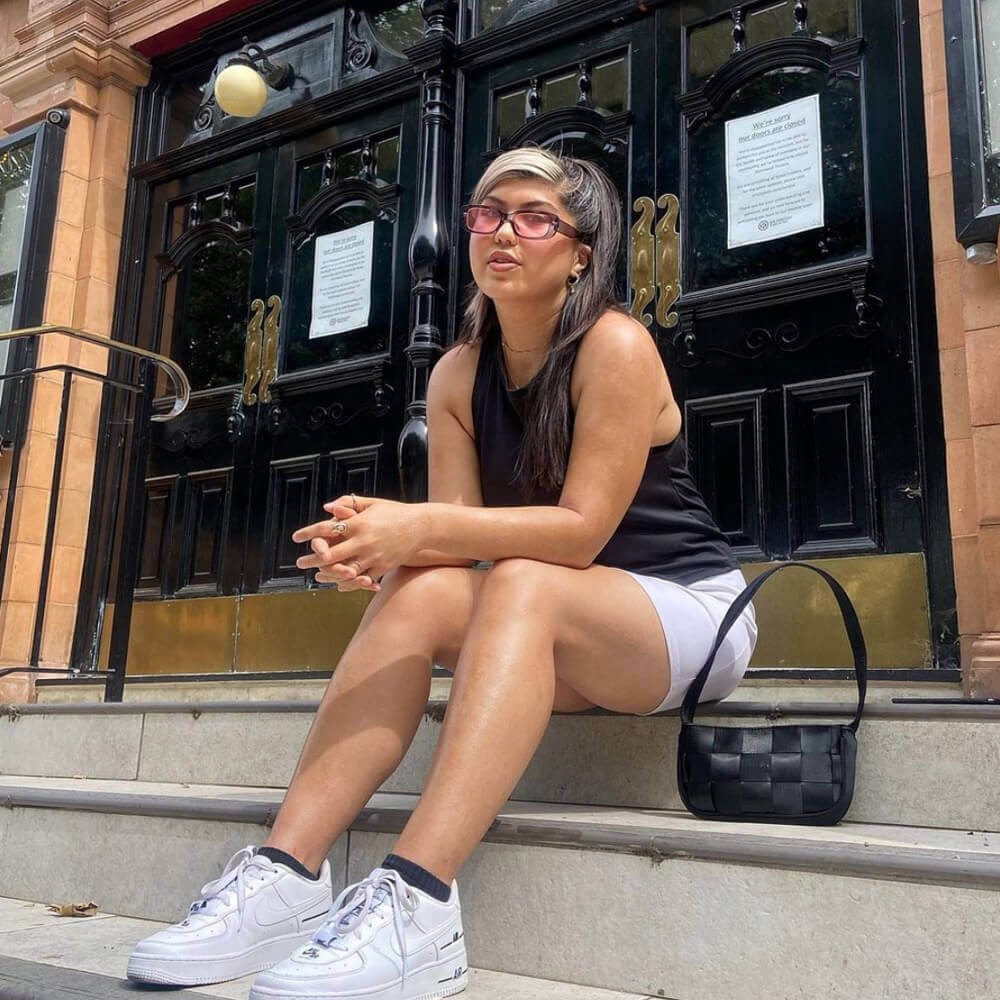 Freshta (Source: Instagram)
Freshta (Source: Instagram)
Okay, what are the pros and cons of working in radio? Do you want to start with maybe some pros? - F
It's a good chance to support artists. It's a good way to connect with other artists and DJs, and build yourself up as a brand. The skills are kind of transferable too. - T
I think for me, it’s the confidence you get from speaking on air and meeting new people, the community that you build, and the community that you're involved in as well, just meeting people that are into the same thing as you, and into the same music in particular. - F
To get onto the cons. I know this is kind of controversial but a lot of people come to me to ask about radio and they think I get paid to do it.
Until you climb the radio ladder, up to like national radio, you have to pay. You have to pay for your music, you have to pay for subs and travel. You have to invest in yourself, and you won't see the results for a good few years, if not longer. - T
It’s time consuming and slightly stressful as well. Sometimes when you’ve got MCs coming in, and sometimes they don't show up, you have to be ready for that. - F
You really have to be able to think on your feet and have extra music or extra things to say to compensate for that loss of time. - T
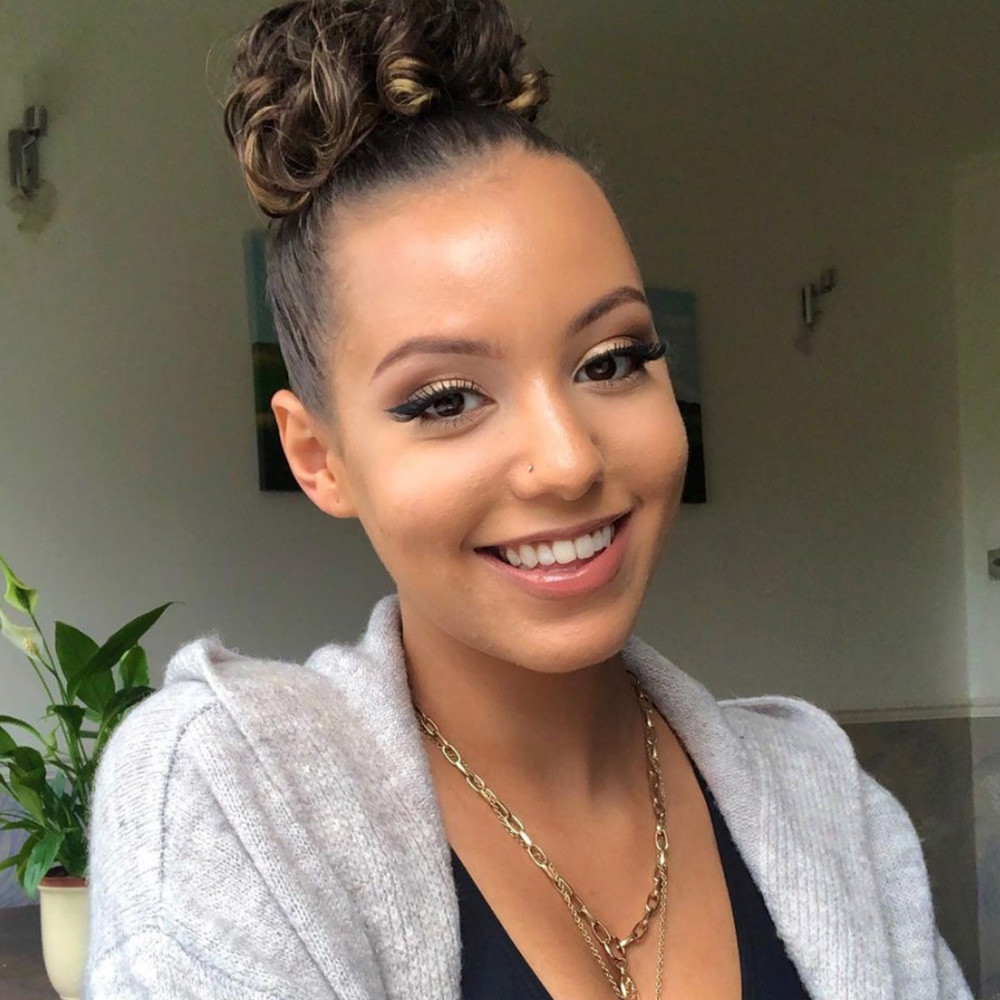 Tia Talks (Source: Instagram)
Tia Talks (Source: Instagram)
Let’s talk a bit about how we shape our radio shows so they represent our vision and how we get to that point. - F
Sonically, I was always really meticulously planning the order of my songs. I would listen to them again and again, thinking about what's going to come after what. I was like that from the get go.
I actually realised after my first few shows that I wasn't pushing women as much as I should. I think that was because, especially in Grime, it's more male dominated, so you have to dig a bit deeper. Now I make a conscious effort to look for certain things to make sure that it's very inclusive, and everyone's getting a look in.
Also, in the beginning, I wouldn't get sent music as much. Fast forward to now, I get sent so much music, so I'm able to play smaller artists that I'd never heard of. At the beginning it was more just like big names, bate songs, and then it became more unique in a sense. Now, people know they’re going to hear new artists when they listen to Tia’s show. How about you? - T
I think at the start, I was just fully experimenting, then I kind of realised, I don't need to bring on big names for guest mixes and whatnot. I started thinking about which artists I wanted to share in terms of their music and their style.
I think when I started doing shows on NTS, that's when I began to shape it to what I wanted it to be, but it was very much trial and error. Like I'd have one show and be like, okay, that wasn't so smooth, or that game I played with my guest didn't go very well - you have to learn from that.
It's always important to bring your own style into things and make it individual as well. Just because there's so many of the same people doing the same things - the same white women as well, like everyone looks the same. So it's like, just bring your own individuality into it, and don't be afraid to just bring out what you're feeling. - F
Yeah, I mean, it's very frustrating, especially not being on a London station. The station that I was on’s diversity quota - I think I was the one of the blackest people and I’m not even fully black, so that would make me a little uncomfortable.
Then sometimes, new presenters would come in and it was very obvious that because I made a conscious effort to make my show quite unique, they were using me as the blueprint for what they should do. It was very frustrating, but it comes with the territory. - T
Were they tokenizing you for being a black person? - F
That's how I felt. I was invited to a photoshoot, for example, and I just didn't want to go because I knew that I was gonna be like the one black girl, you know, it just made me feel uncomfortable.
I know that there are black women in Brighton as well that want to get into radio but I wouldn't necessarily feel comfortable putting them forward to that station. I don't want them to go into an environment where they’re just meeting like a diversity quota. - T
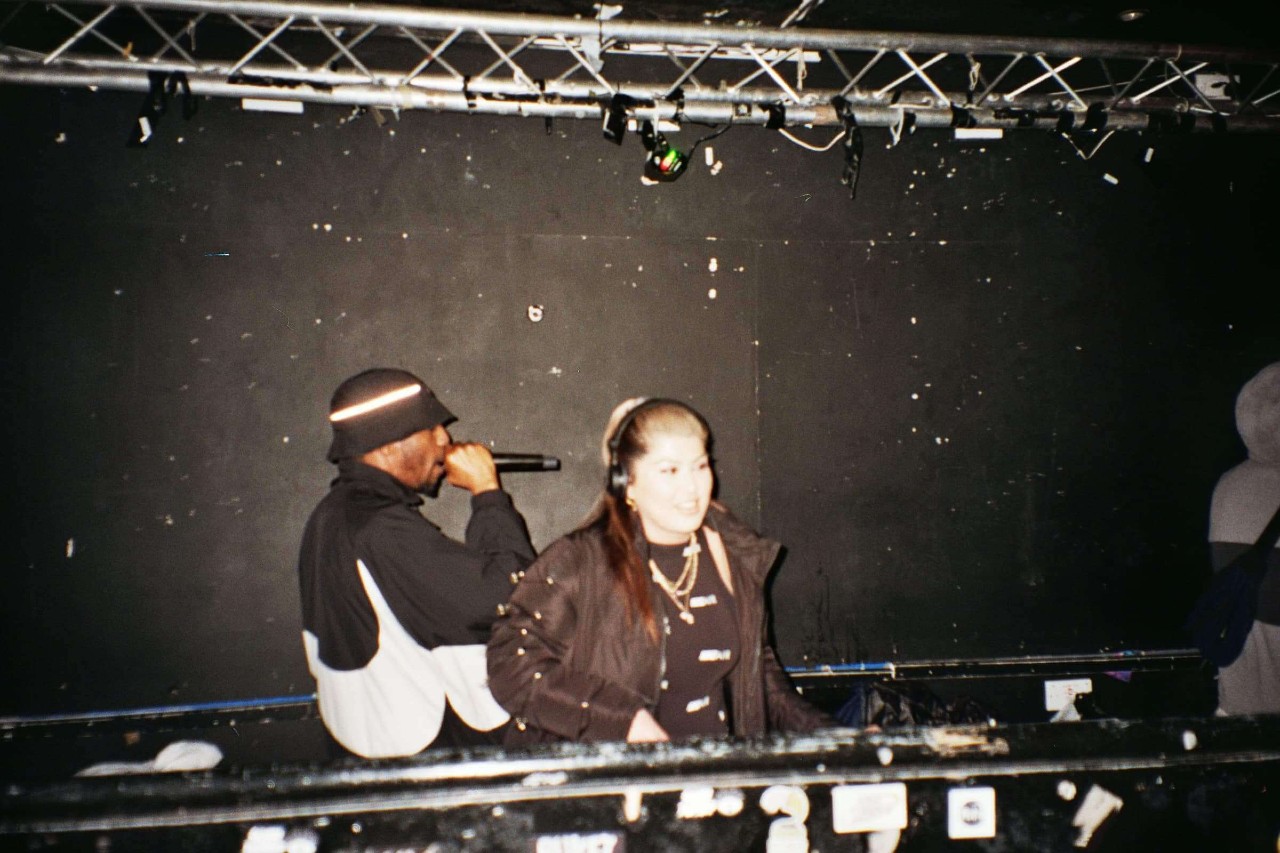 Freshta
Freshta
How do you feel the community around you impacts or influences your work? - F
With the music industry, I think there's two elements to it: the scene and the industry.
The scene is like underground, more centred on culture and the other side is business, and climbing ladders, and doing big brand deals and big money is involved. The culture side is important because if you get rejected by the culture, it’s unlikely you're going to get anywhere with the industry. - T
I kind of want to bring this back to us, starting out in radio as women. What kind of advice would you give to a young woman starting out? - F
You really have to know yourself. Obviously, it depends on the genre that you’re in, but a lot of the music industry is male dominated. You have to know your boundaries and stick to them.
Also, I’m just going to come out and say it straight, don't let men solicit sex from you in exchange for an opportunity. You don't need to do that. A lot of people try, and they present it in a way that doesn’t seem so sinister. I’ve felt uncomfortable in numerous situations, but I've had to push through it and stand up for myself. Don't ever be afraid to be outspoken and speak your truth. It can be hard and the backlash can come but ultimately people will respect you more. You're also doing other women a favour when you call out things that are wrong.
I feel I'd also say push for inclusivity. We still need that on lineups and we still need that in radio spaces.
Creating your own platform or community is also a good idea. That's what I'm trying to do with the stuff that I'm building. It's mine, so no one can tell me what to do or how to do it. - T
I feel like I just want to start calling people out now, I'm not afraid to say anything. I feel like the past year we've had with a pandemic, the Black Lives Matter movement, the Me Too movement for women, everything's heightened, I feel like it's the right time to call things out. - F
One of the things that I would say is it's definitely good to see more women speak out about their experiences nowadays but sometimes they’re only shown support on the surface.
I know when a lot of women speak out, they're sometimes categorised as difficult to work with or they’ll say she’s always crying about something on the timeline so there's still work that needs to be done there. - T
It's hard and we have a long way to go, even though it's 2021. When things do go back to normal, do you think we'll see an improvement in the music industry in terms of women being on lineups, black women being represented on lineups? Do you actually think there'll be a difference? - F
Can I be honest, I think it might be the other way around, I think we might take steps backwards.
It was all about flying the flag for inclusivity but ultimately, this lot wants to sell tickets because the industry is struggling right now. They're gonna put the big, blown-up men's names on the flyers to try and draw people in. They think that women don't sell tickets. That's why on festival lineups, I'm still seeing a ratio of men to women which isn’t good enough. So I don't I don't think that anything is going to drastically change.
But I think that we women have, in this time, become more resourceful, and we've had time to think and speak about certain things more. I know that women in control have been doing clubhouse rooms and stuff like that. Nadia and other people have been on it with that. I just think, for me personally, that we need more events run by women. - T
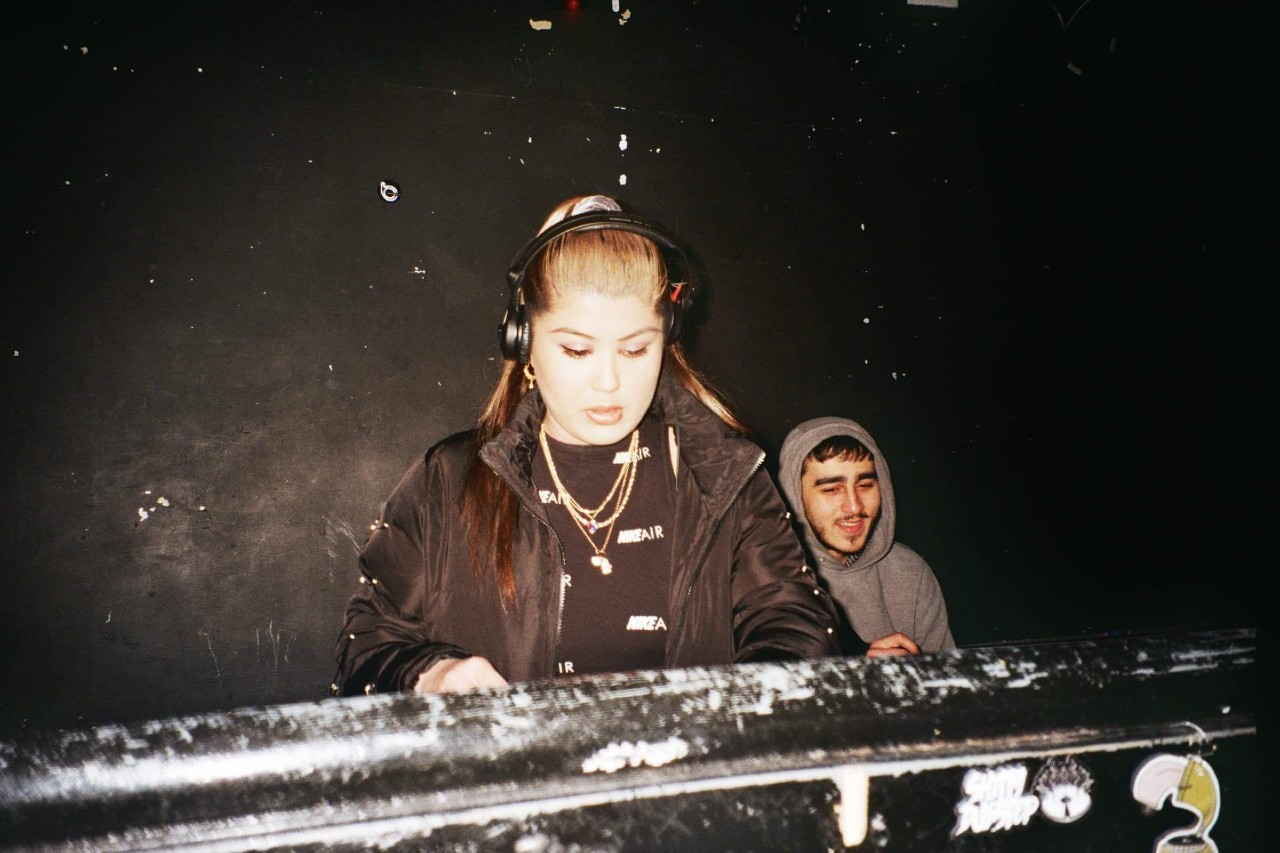 Freshta
Freshta
I also feel like not enough women in the industry ask for enough money, especially in terms of DJing and booking fees. I always tell people don't be shy.
I set my fee higher than it actually is. And I know that means the promoter is going to negotiate. But I feel like a lot of women shy away from money and underestimate how much they're actually worth. But let me tell you, if you're not doing it, the white straight guy on the lineup will be getting all the bills. - F
There’ll be massive line-ups and not everyone’s getting paid. Some people aren't getting paid at all. Some people are getting paid bills and bills and bills, some people are getting their travel covered, I’m saying it’s very disproportionate. And then the women, you can forget about it. - T
Is there anything you want to say to wrap this up? I mean, you've got a lot going on. So maybe give us an insight of what we can expect from you like in the next couple months or even the rest of the year. - F
In the next couple of months, I'm making music. I'm working hard with some amazing, incredible people that I've respected for a long time. And thanks to everyone that's rocking with me because there's a lot of jealous people that don't want to see Tia do something that they haven't done.
Anyone that follows me already or doesn't, come follow me and come on a journey with me because I'm gonna just try and stay soft and not let this ruin me. - T
Yeah, and also, I just want to say I heard Tia spit over some Hip Hop as well and you lot aren't ready. You're not ready. - F
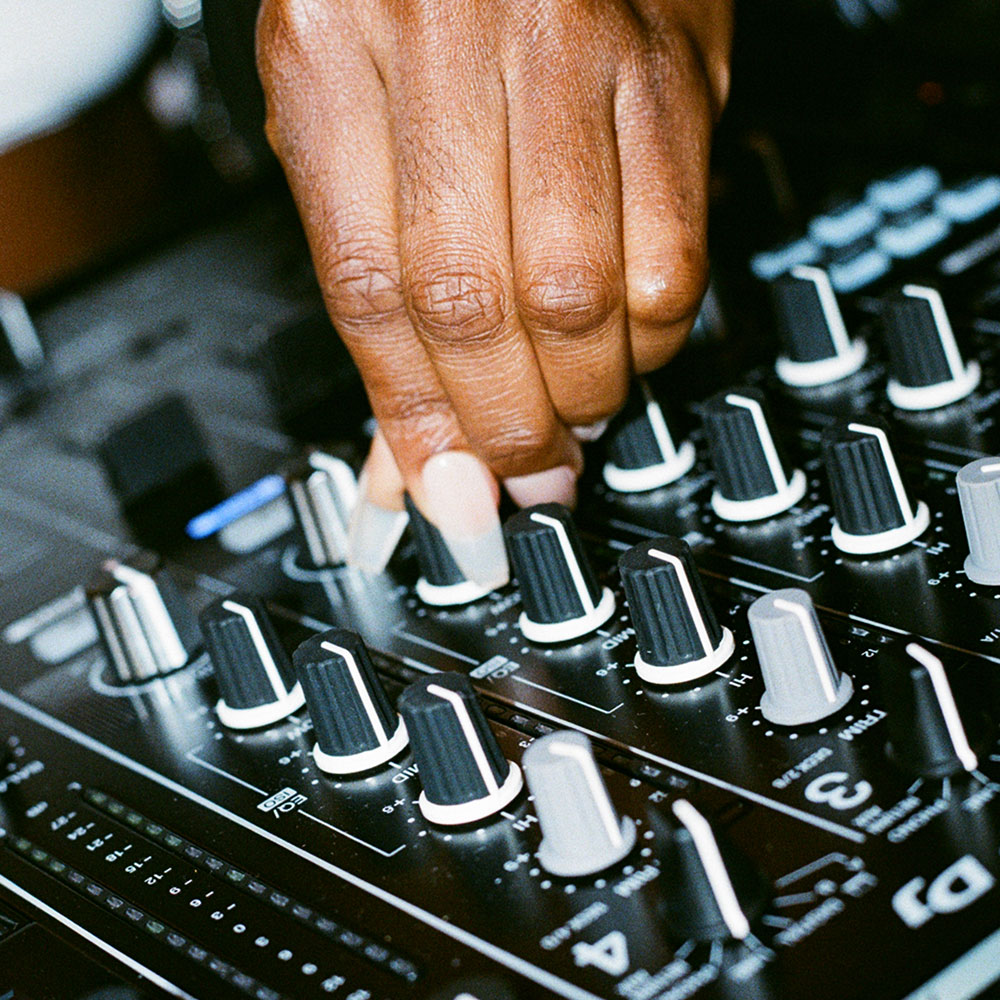
You can keep up with Freshta and Tia Talks on Instagram. Their full conversation on getting into radio and the industry at large is also available here.
For more industry insights, and DJ Tips, including ‘How To Prepare For Gigs Post-Covid’, head to the Pirate.com blog.
